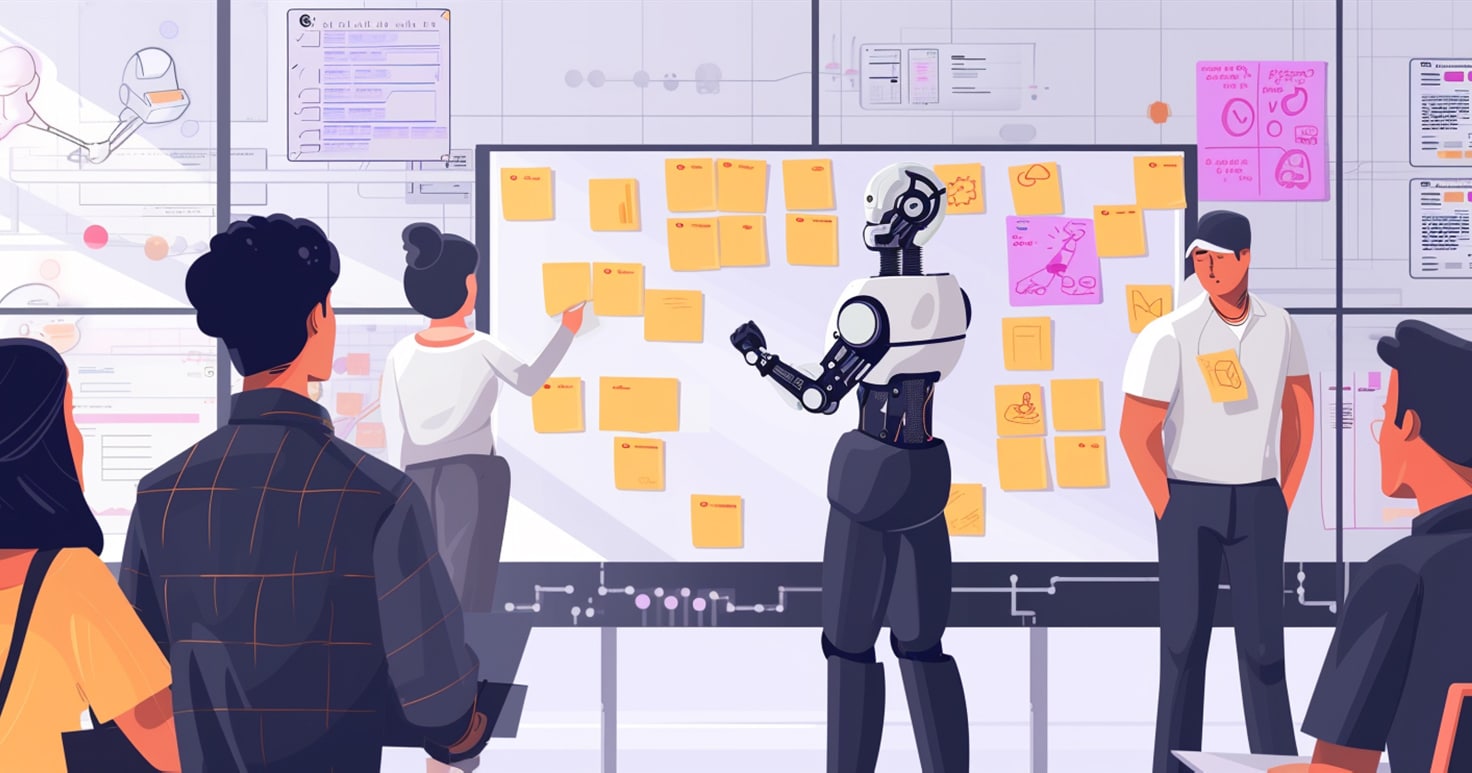The intersection of Artificial Intelligence (AI) and Agile methodologies is creating a transformative wave across industries, promising to redefine how we approach project management and software development.
A recent meeting led by Mark Kilby, a faculty member at Modus Institute, shed light on this intriguing confluence, particularly focusing on generative AI applications and the broader implications of AI and automation in Agile environments.
The Role of Generative AI in Agile Transformation
Generative AI, with its ability to forecast, analyze data, and automate processes, stands at the forefront of this revolution. Models like ChatGPT, Gemini, and others are not just buzzwords but tools that are shaping the future of work.
Mark highlighted how generative AI could significantly assist Agile teams by enhancing the quality of their work, making processes more efficient, and fostering innovation.
Challenges and Concerns with AI in Agile Environments
However, as with any technological advancement, there are challenges and concerns. One of the critical points raised was the reliability of code generation from generative AIs.
The emphasis on vetting the source data underlines the importance of maintaining quality and integrity in the outputs generated by these models.
It’s a reminder that while AI can be a powerful ally, it requires careful oversight and management to ensure its contributions are accurate and aligned with the project’s goals.
Broader Implications of AI and Automation in Agile
The discussion then pivoted to the broader spectrum of AI and automation, with Mark Kilby delving into the current and future capabilities of these tools.
Yet, alongside the excitement, there are genuine concerns about data security, code quality, and integrating these technologies with existing systems.
Moreover, the skills shortage in AI poses a significant hurdle, highlighting the need for skilled professionals who can navigate these rapidly changing technologies.
Skills Shortage and Market Excitement in AI Technology
The hype surrounding AI technology, fueled by substantial investment from venture capitalists, raises questions about its actual benefits versus the market excitement.
While there is undeniable energy and enthusiasm driving research and innovation, especially from giants like Google and Microsoft, the industry is at a juncture where it must critically assess the long-term implications and value of these advancements.
AI Co-pilots and Their Role in Agile Methodologies
One of the most captivating discussions revolved around using AI co-pilots to enhance different Agile roles. The speaker shared an anecdote about a team – without an Agile coach for several months – that created their own Agile coach bot using AI, illustrating the creative and innovative applications of AI in Agile environments.
While not a replacement for a trained and experienced Agile coach, the story illustrates what the current technology makes available.
Balancing Opportunities and Challenges in AI and Agile Integration
In conclusion, the meeting underscored the dynamic interplay between AI and Agile methodologies, highlighting both the opportunities and challenges that lie ahead. As we navigate this exciting frontier, it’s clear that the synergy between AI and Agile can transform the very industry that launched over 20 years of transformation – Agile project management and software development.
However, it also calls for a balanced approach considering the ethical, practical, and technical aspects of integrating AI into our workflows.
With careful management and strategic implementation, AI can become a valuable ally in the Agile world, driving efficiency, innovation, and quality in our projects.
NOTE:
This article was generated by ChatGPT and Claude.ai and lightly edited by Mark Kilby.
Both Generative AI were given the following prompt.
Given the attached presentation and the following notes from MeetGeek.ai, can you write a 500 to 600-word blog post summarizing the meeting for an agile-savvy audience?
(The following were relevant notes from MeetGeek.ai.)
6. Generative AI Applications
The speaker mentions various applications of generative AI, such as forecasting, voicebots, analyzing customers, and process automation.
The speaker mentions different models like Chappie, GPT, VAR, and Gemini.
The speaker discusses the potential benefits of generative AI in assisting agile teams and improving the quality of work.
Concerns are raised about code generation from generative AIs and the importance of vetting the source data.
7. AI and Automation
Mark Kilby discusses the current and future capabilities of AI and automation tools, including chatbots, automated translators, and fully autonomous AI.
Mark Kilby raises concerns about data security, code quality, integration with existing systems, and talent shortage in the field of AI and automation.
8. Discussion about AI companies and market hype
Mark discusses the hype around AI technology and the investment by venture capitalists in AI companies.
Mark expresses uncertainty about whether the hype matches the actual benefits of AI and whether it will shift the marketplace.
Mark mentions the energy and excitement in the industry, pushing research and innovation in AI, particularly with Google and Microsoft.
Mark discusses the use of AI co-pilots to improve efficiencies and shares a story about a team creating their own agile coach using AI.











